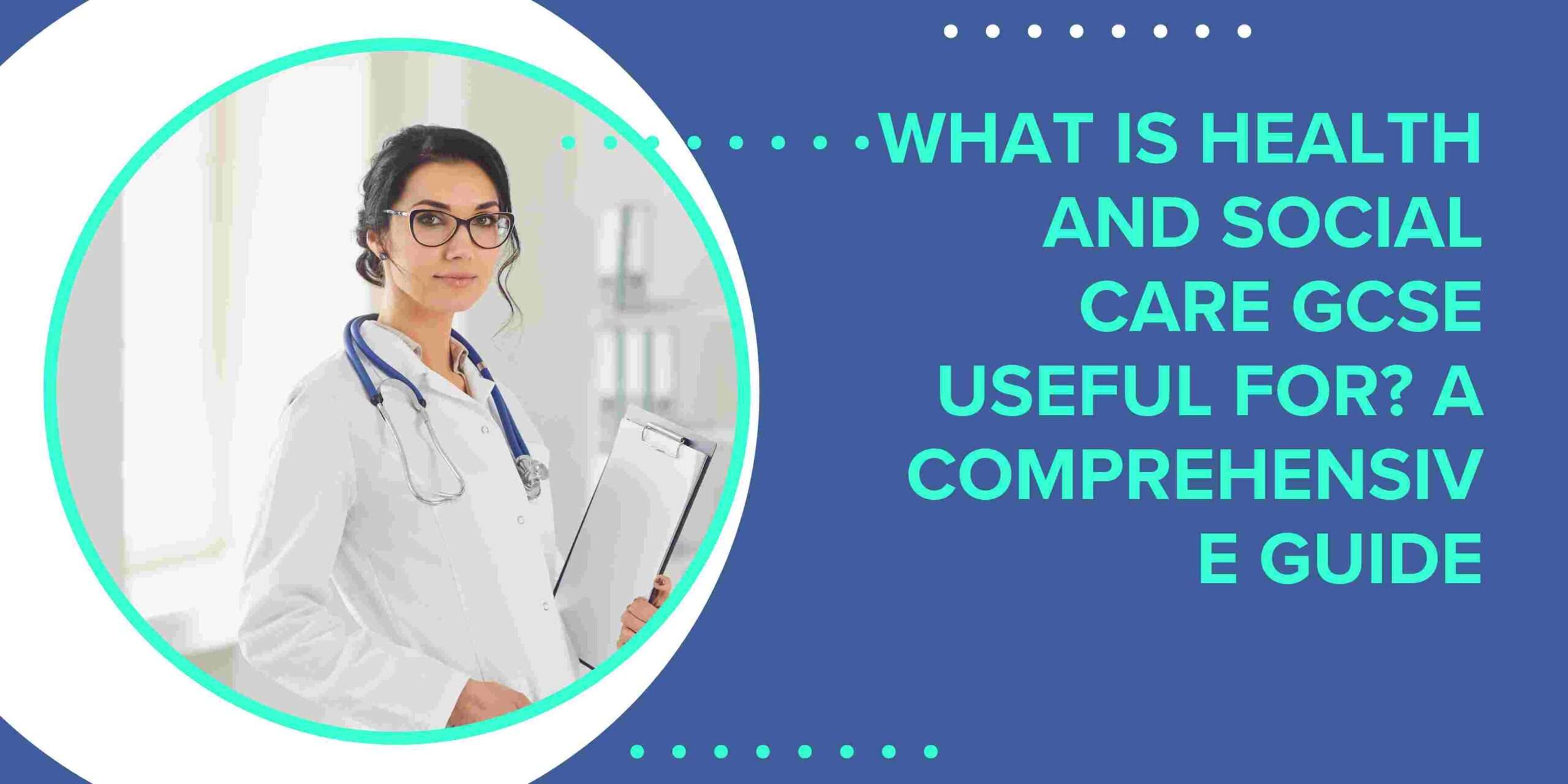Introduction
Choosing the right subjects at the GCSE level can significantly impact your future educational and career prospects. One such subject that has gained considerable attention over the years is Health and Social Care GCSE. Many students and parents often ask, ‘What is Health and Social Care GCSE useful for?’ Understanding its usefulness can help in making an informed decision about whether to include it in your academic journey.
In this comprehensive guide, we will explore the benefits, career pathways, skills developed, and various applications of studying Health and Social Care at the GCSE level.
What Is Health and Social Care GCSE?
Definition and Overview
Health and Social Care GCSE is a subject designed to provide students with foundational knowledge about the health and social care sectors. It focuses on areas such as personal development, health and safety, communication, social services, early years care, and mental health awareness.
What Does the Course Cover?
- Personal Development: Understanding how people grow and develop throughout their lives.
- Health and Wellbeing: Learning about physical, mental, and social health.
- Communication Skills: Developing effective verbal and non-verbal communication techniques.
- Ethical and Legal Frameworks: Understanding the ethical and legal aspects of health and social care.
- Professional Practice: Learning about the roles and responsibilities of health and social care workers.
Why Is Health and Social Care GCSE Useful?
Studying Health and Social Care at the GCSE level offers numerous advantages. Let’s break down its usefulness.
1. Provides a Strong Foundation for Further Education
Health and Social Care GCSE serves as a stepping stone for students who wish to pursue advanced studies in related fields, such as:
- A-Levels in Health and Social Care.
- Diplomas in Health and Social Care (Levels 2 and 3).
- University degrees in Nursing, Social Work, Psychology, and Public Health.
2. Career Opportunities
The healthcare and social care industries are among the largest employment sectors globally. Understanding what Health and Social Care GCSE is useful for can help you explore career paths such as:
- Nursing
- Social Work
- Healthcare Assistant
- Counseling
- Early Years Practitioner
- Physiotherapy
- Occupational Therapy
3. Development of Essential Skills
Studying Health and Social Care develops a wide range of skills, including:
- Communication: Verbal and non-verbal communication techniques for various settings.
- Empathy: Understanding and supporting individuals with diverse needs.
- Critical Thinking: Analyzing case studies and making informed decisions.
- Problem-Solving: Addressing real-life challenges in health and social care settings.
- Teamwork: Collaborating effectively with peers and professionals.
4. Improved Understanding of Health Issues
Students gain knowledge about various health conditions, including mental health, physical disabilities, and chronic illnesses. This understanding is essential for:
- Promoting health awareness.
- Educating others about health and wellbeing.
- Supporting individuals with health challenges.
5. Preparation for Vocational Training
Many vocational courses require foundational knowledge in health and social care. Studying this subject at the GCSE level provides a solid basis for:
- Nursing apprenticeships.
- Childcare qualifications.
- Public health courses.
Applications of Health and Social Care GCSE
Healthcare Industry
- Working in hospitals, clinics, or care homes.
- Providing support to patients and their families.
- Understanding ethical and legal responsibilities.
Social Services
- Supporting vulnerable individuals in communities.
- Collaborating with social workers and counselors.
- Assisting with rehabilitation programs.
Education Sector
- Teaching and promoting health education.
- Raising awareness about physical and mental health.
- Developing inclusive policies for diverse populations.
Research and Development
- Conducting studies related to health and social care.
- Developing innovative solutions for public health challenges.
Career Pathways After Health and Social Care GCSE
1: Advanced Studies
- A-Levels in Health and Social Care
- NVQ Level 3 Diploma in Health and Social Care
- University Degrees (e.g., Nursing, Social Work, Psychology)
2: Vocational Training
- Apprenticeships in Health and Social Care
- Professional Certifications
- On-the-job training
3: Direct Employment
- Healthcare Assistant
- Care Worker
- Support Worker
- Early Years Practitioner
Conclusion
Understanding what Health and Social Care GCSE is useful for is essential for making informed decisions about your academic and career journey. Whether you are looking to pursue further education, enter the workforce directly, or enhance your personal development skills, studying Health and Social Care at the GCSE level offers valuable benefits.
From improving communication skills to understanding ethical frameworks and gaining practical knowledge, the opportunities are vast. As the demand for healthcare and social services continues to grow, having a foundational understanding of these areas can provide a significant advantage.
Whether you aspire to be a nurse, social worker, or counselor, Health and Social Care GCSE can be your stepping stone to success.
Read More: What is GCSE Health and Social Care Course: A Complete Guide to This Essential Qualification







